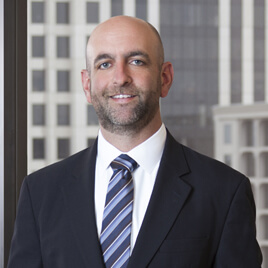Segal McCambridge Shareholders Peter Strelitz and Matthew Kelly prevailed in the United States District Court for the District of Oregon in a medical device product liability case in which the plaintiff contended that an infection and subsequent death stemmed from a defect in our client’s feeding tube.
Plaintiff’s husband suffered a catastrophic injury from a fall and relied on a gastrostomy tube for many years. While hospitalized in September 2016 for respiratory problems, his feeding tube was replaced with a tube manufactured by our client. Shortly after discharge, he experienced issues with the new tube and returned to the hospital for a replacement tube. The tube was removed and replaced with a different feeding tube without complication. Plaintiff’s husband passed away a few months later from complications related to an abdominal infection. Despite testimony and medical records to the contrary, Plaintiff alleged that our client’s feeding tube caused his death.
After the close of discovery, our team filed a Motion for Summary Judgment and a Rule 702 Motion challenging the admissibility of Plaintiff’s expert’s opinion. The motions argued that, 1) Plaintiff's expert was not qualified to provide certain opinions related to causation; 2) that Plaintiff’s expert opinions of a supposed defect were inadmissible; and 3) that Plaintiff had not met her burden to establish the necessary elements of her product liability claim because she lacked the requisite expert testimony.
The Court agreed with our team. It held that the expert’s methodology was unreliable because he did not conduct sufficient testing or rely on established scientific research to support his claim of a manufacturing defect. The Court also excluded his testimony on the cause of death because he lacked necessary medical training or expertise. As a result, the Court granted our client’s motion to exclude the expert and granted Defendant’s Summary Judgment Motion.
By identifying and exploiting the weaknesses in Plaintiff's case and successfully challenging the reliability and qualifications of her expert, Peter and Matthew showed the necessity of adhering to established scientific standards and methodologies in evaluating product liability claims. The District Court's ruling not only safeguarded our client's reputation but also reinforced the principle that legal outcomes must be founded on sound evidence and expert testimony rooted in the facts of the case and their genuine expertise.



